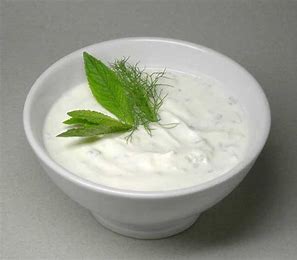
Yogurt Combinations: Maximizing Nutrition and Health Benefits
Are you a yogurt enthusiast looking to boost your health? Discover how pairing yogurt with other foods can enhance its nutritional value and health benefits. In this article, we’ll explore the pros and cons of eating yogurt alone versus combining it with other ingredients.
The Power of Plain Yogurt
Yogurt, a fermented dairy product, is already a nutritional powerhouse on its own. Rich in:
- Protein
- Calcium
- Probiotics
- Vitamins B2 and B12
Eating yogurt alone provides these essential nutrients in a low-calorie package, making it an excellent choice for weight management and gut health.
Yogurt Combinations: Elevating Nutrition
While yogurt is nutritious on its own, combining it with other foods can significantly enhance its health benefits:
1. Yogurt + Fruits
Benefits:
- Increased fiber intake
- Added vitamins and antioxidants
- Natural sweetness without added sugars
Try pairing yogurt with:
- Berries (strawberries, blueberries, raspberries)
- Sliced bananas
- Diced apples or pears
2. Yogurt + Nuts and Seeds
Benefits:
- Healthy fats for improved nutrient absorption
- Added protein and minerals
- Increased satiety
Great combinations include:
- Greek yogurt with almonds and chia seeds
- Plain yogurt with walnuts and flaxseeds

3. Yogurt + Whole Grains
Benefits:
- Increased fiber for digestive health
- Complex carbohydrates for sustained energy
- Enhanced vitamin B content
Try these options:
- Yogurt parfait with granola
- Yogurt topped with whole grain cereal
4. Yogurt in Savory Dishes
Benefits:
- Reduced fat content in recipes
- Added protein to meals
- Probiotic boost in cooked dishes
Savory applications:
- Use as a marinade for chicken or fish
- Blend into smoothies with leafy greens
- Substitute for sour cream in dips or dressings
Health Considerations
While yogurt combinations can offer numerous benefits, keep these factors in mind:
- Sugar content: Be cautious with flavored yogurts or sweetened toppings.
- Calorie density: Adding high-calorie ingredients like nuts or granola can increase overall calorie intake.
- Allergies and intolerances: Consider individual dietary restrictions when combining foods.
Conclusion
Incorporating yogurt into your diet, whether alone or in combination with other foods, can significantly contribute to your overall health and nutrition. By thoughtfully pairing yogurt with complementary ingredients, you can create delicious and nutritious meals that support your wellness goals.
Remember to choose high-quality, probiotic-rich yogurt as your base, and experiment with various combinations to find what works best for your taste preferences and nutritional needs.